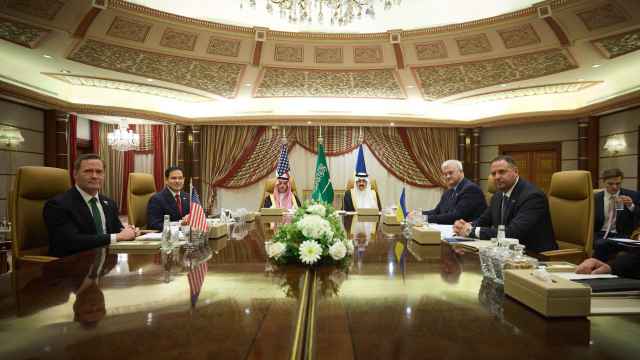Russia needs to build a favorable environment for the protection of intellectual property to make content creation profitable for its owners, Google Russia's Communication Director Marina Zhunich said Tuesday.
Speaking at a seminar on economics of intellectual property on the web, Zhunich said a well functioning intellectual property protection system is required to encourage innovation and increase revenue from copyrighted content.
A representative from the Education Ministry said the intellectual property protection strategy needs to focus on three components: a flexible state-owned electronic system to provide registration and administration services to copyright owners; an effective mechanism to deal with copyright breaches and disputes; and development of a digitally-minded creative community.
This strategy will strengthen the country's creative industry, create new workplaces and prevent the recently established Intellectual Property Court from being clogged up with cases that can be mediated and resolved outside the court room, he said.
While there is no correlation between the magnitude of legal threats against piracy and revenue collected from copyrighted material sales, having a legal framework that protects content authors will result in a greater number of online outlets offering licensed material, Michael Masnick, a technology analyst, said at Tuesday's seminar.
Oleg Novikov, head of the Eksmo publishing house, warned that if there was no protection from the government, authors would stop writing altogether and find another way to make money.
The Intellectual Property Court was established within the commercial court system on Feb. 1, 2013 to deal with IP disputes in line with international standards of IP protection.
Contact the author at g.moukine@imedia.ru
A Message from The Moscow Times:
Dear readers,
We are facing unprecedented challenges. Russia's Prosecutor General's Office has designated The Moscow Times as an "undesirable" organization, criminalizing our work and putting our staff at risk of prosecution. This follows our earlier unjust labeling as a "foreign agent."
These actions are direct attempts to silence independent journalism in Russia. The authorities claim our work "discredits the decisions of the Russian leadership." We see things differently: we strive to provide accurate, unbiased reporting on Russia.
We, the journalists of The Moscow Times, refuse to be silenced. But to continue our work, we need your help.
Your support, no matter how small, makes a world of difference. If you can, please support us monthly starting from just $2. It's quick to set up, and every contribution makes a significant impact.
By supporting The Moscow Times, you're defending open, independent journalism in the face of repression. Thank you for standing with us.
Remind me later.





